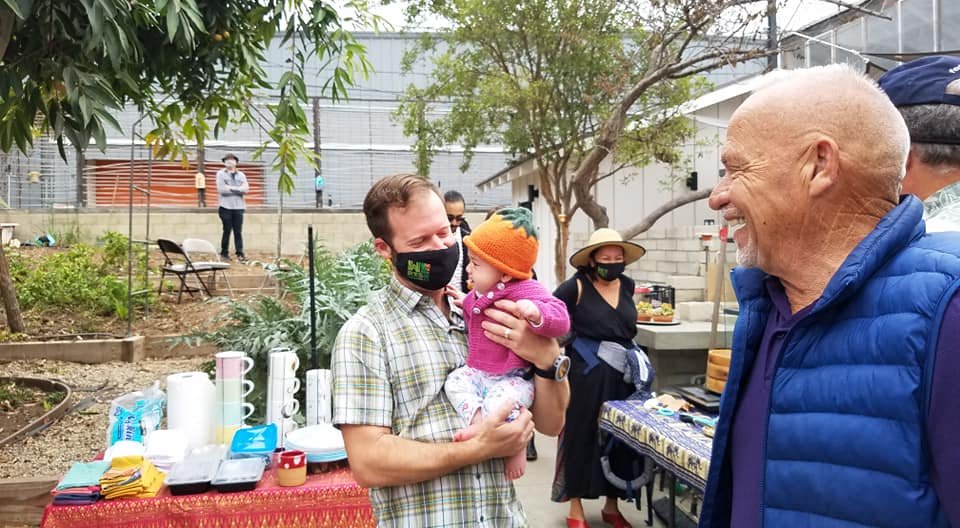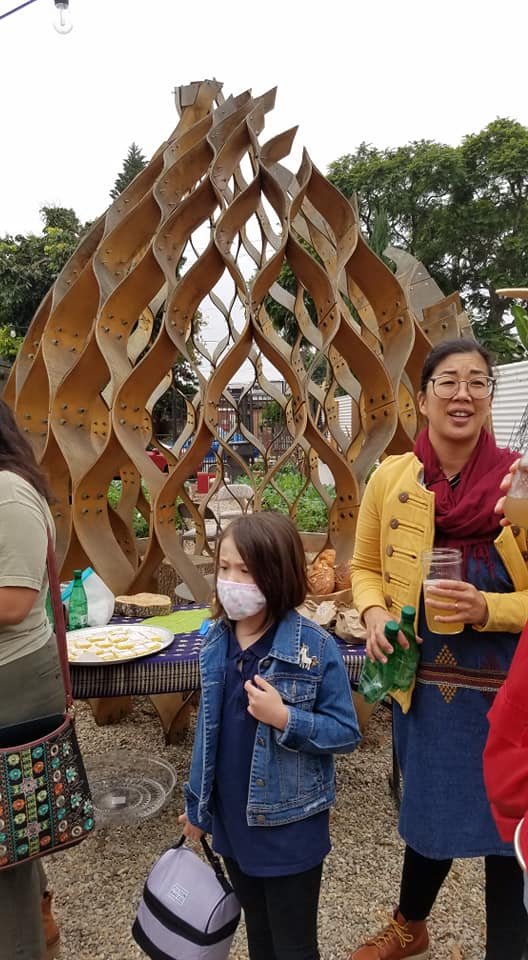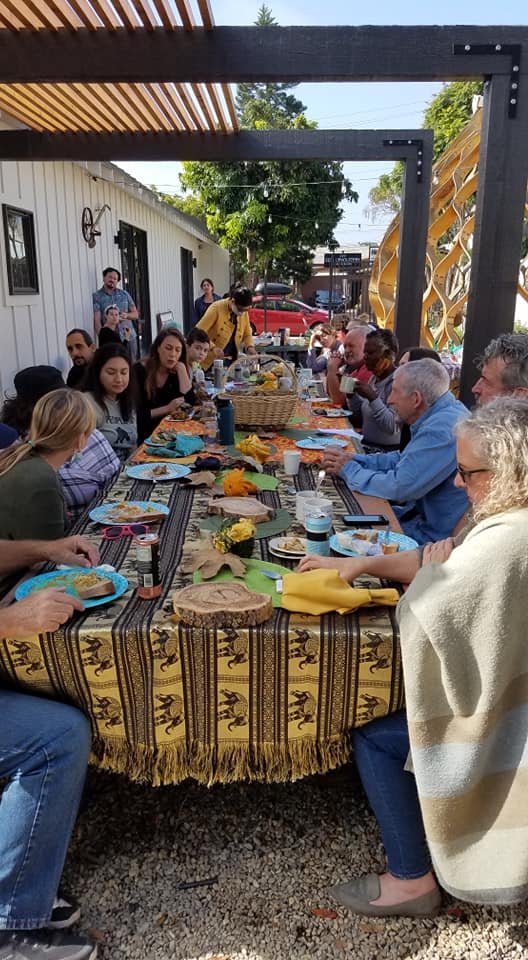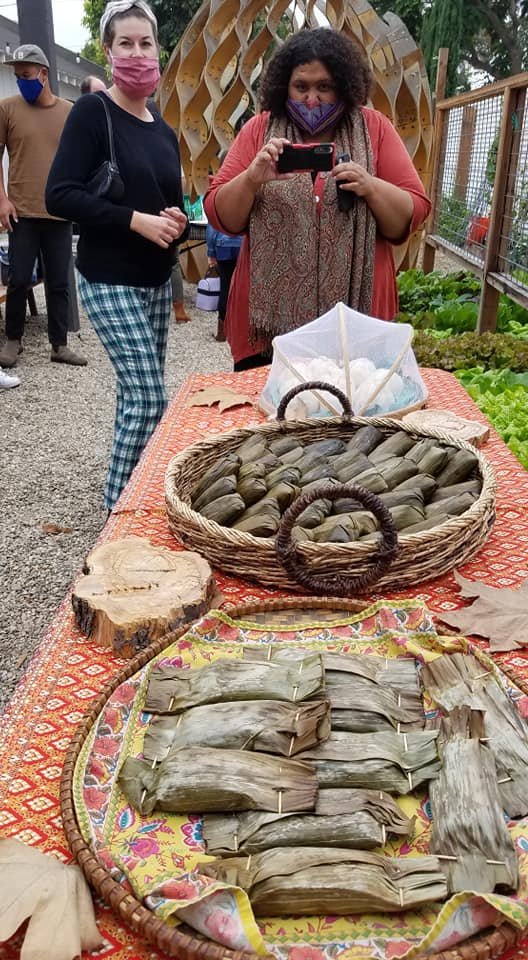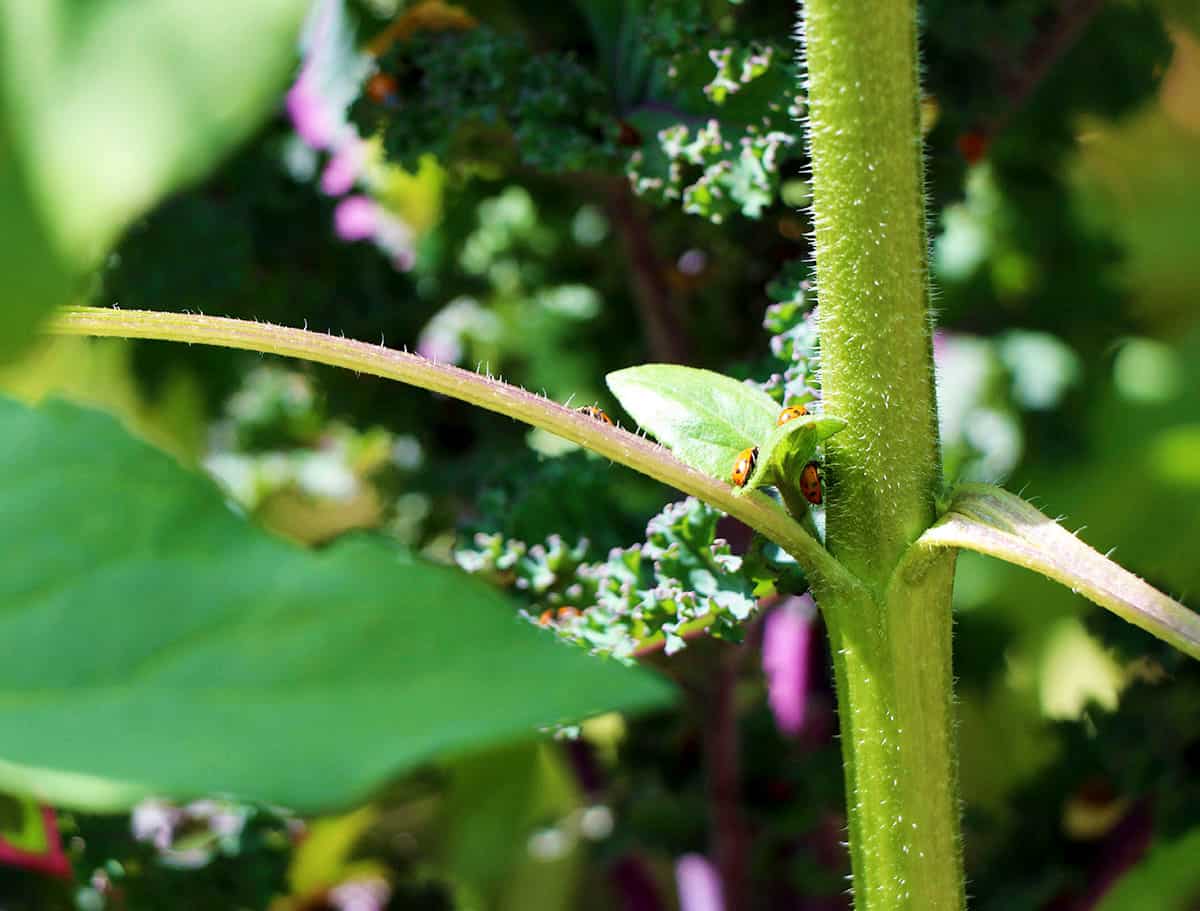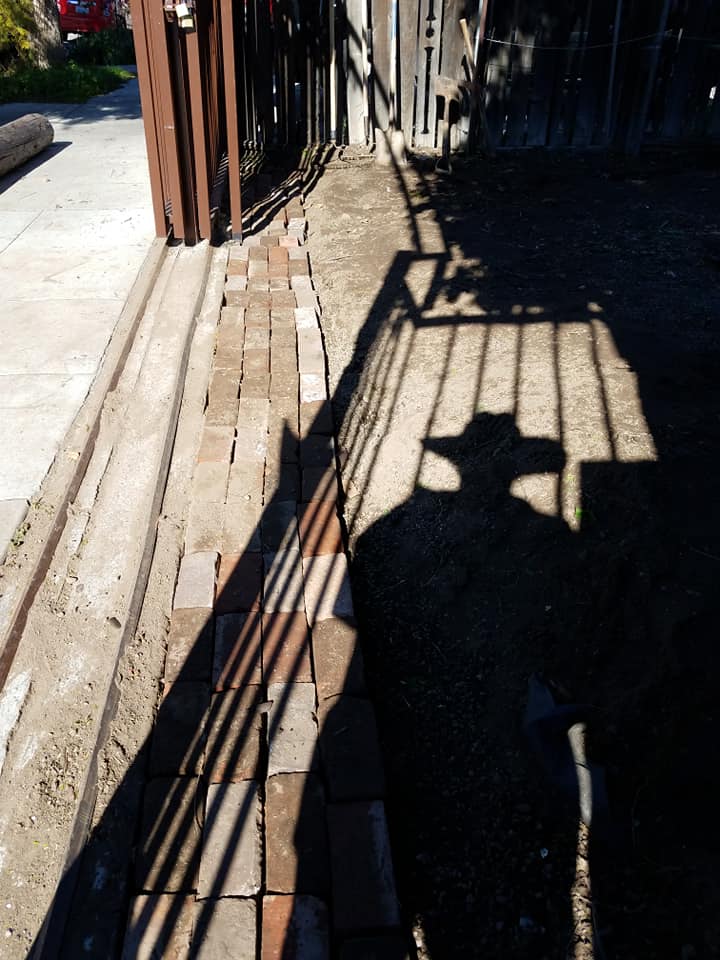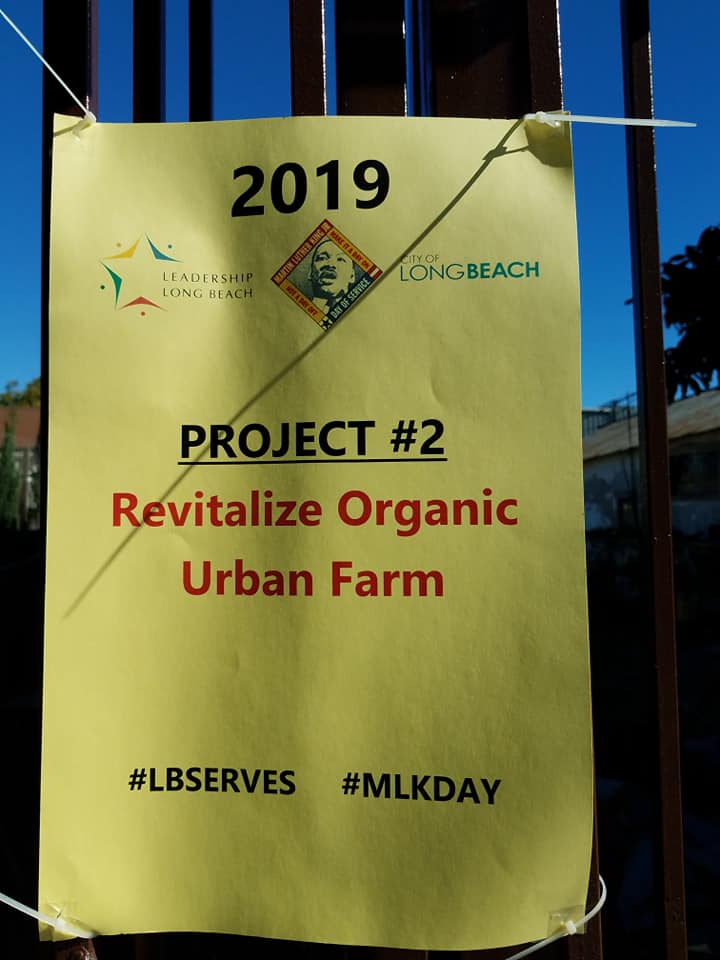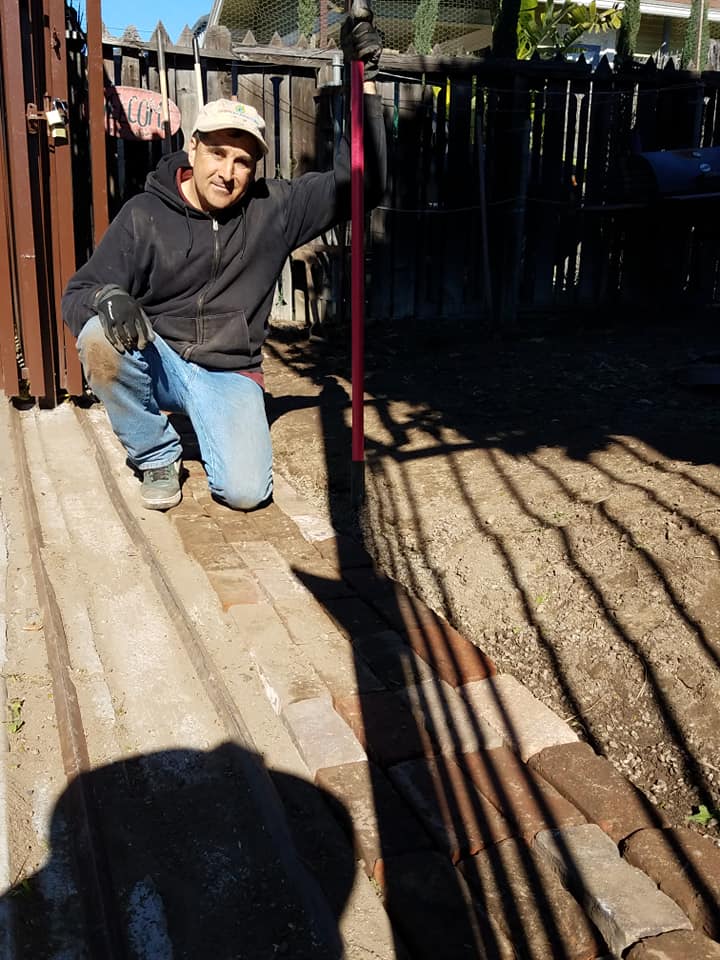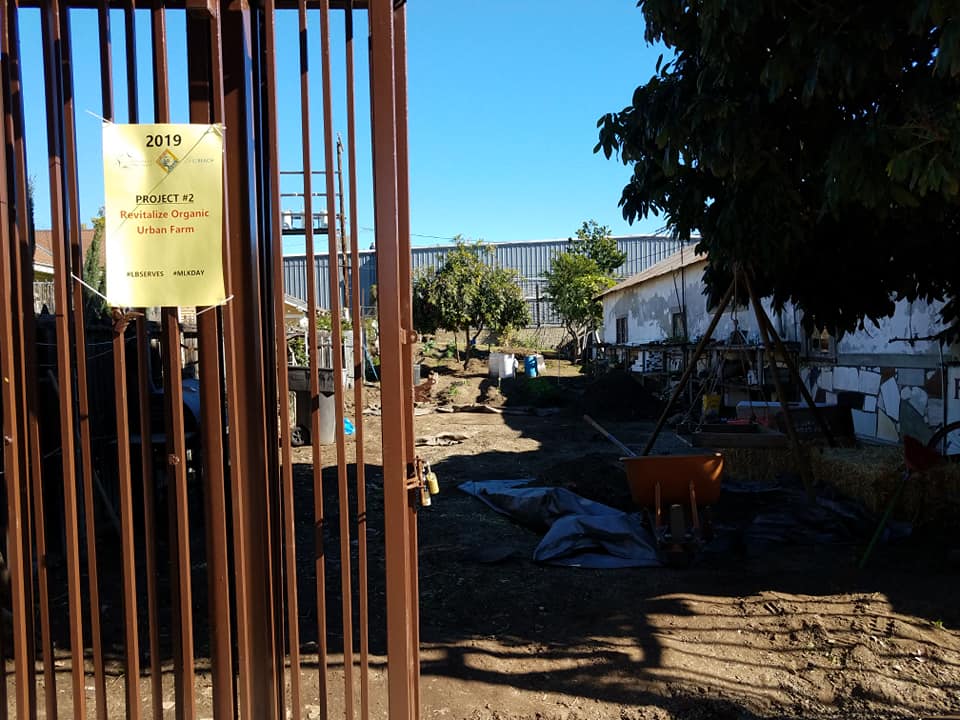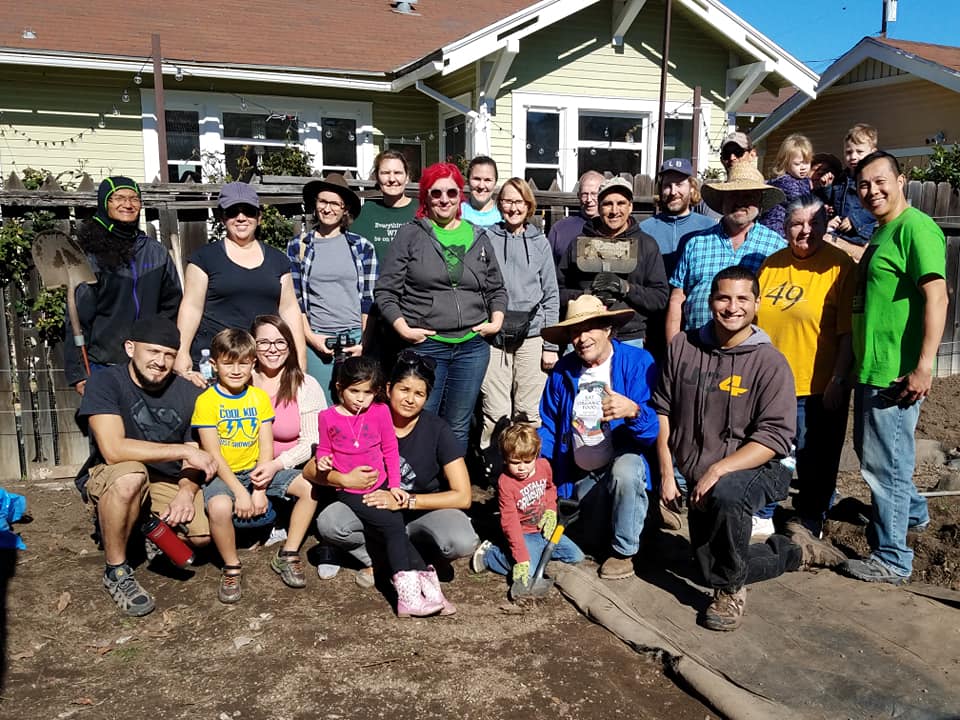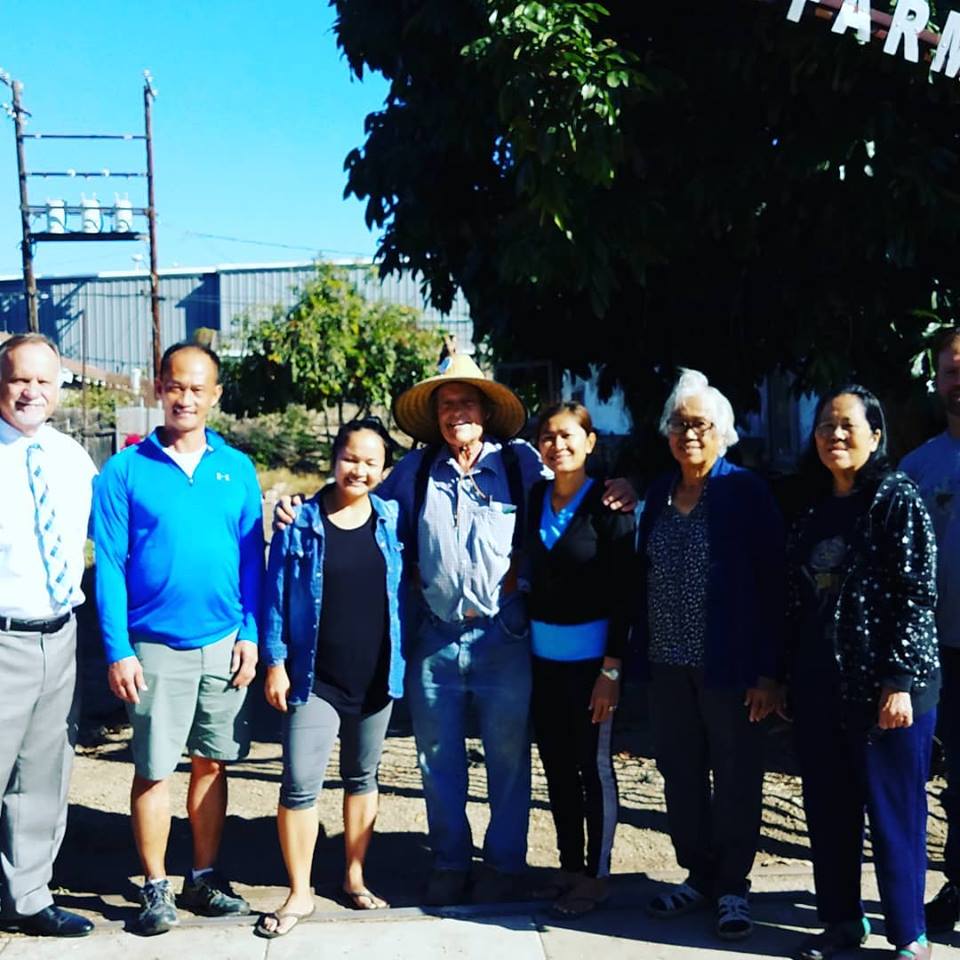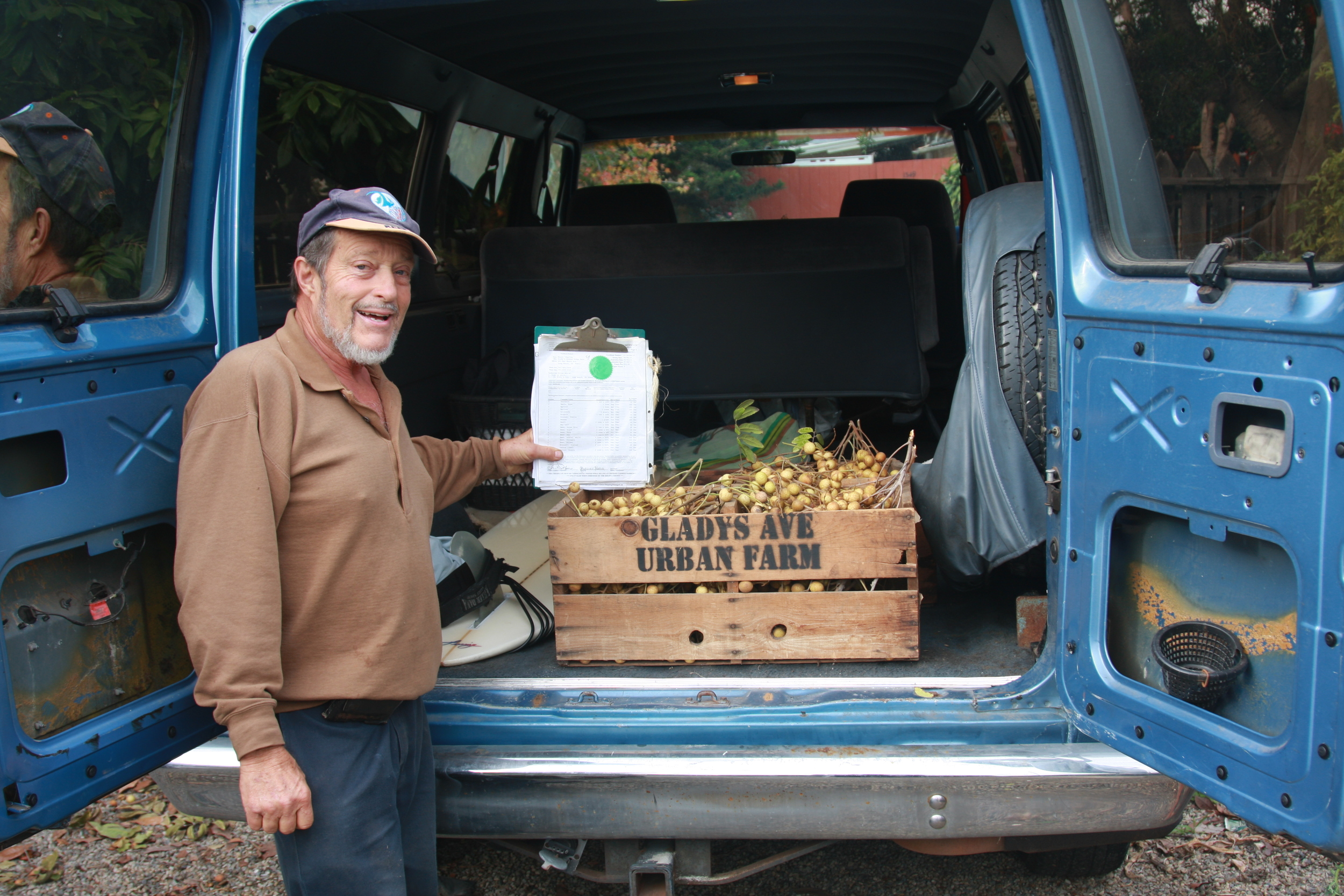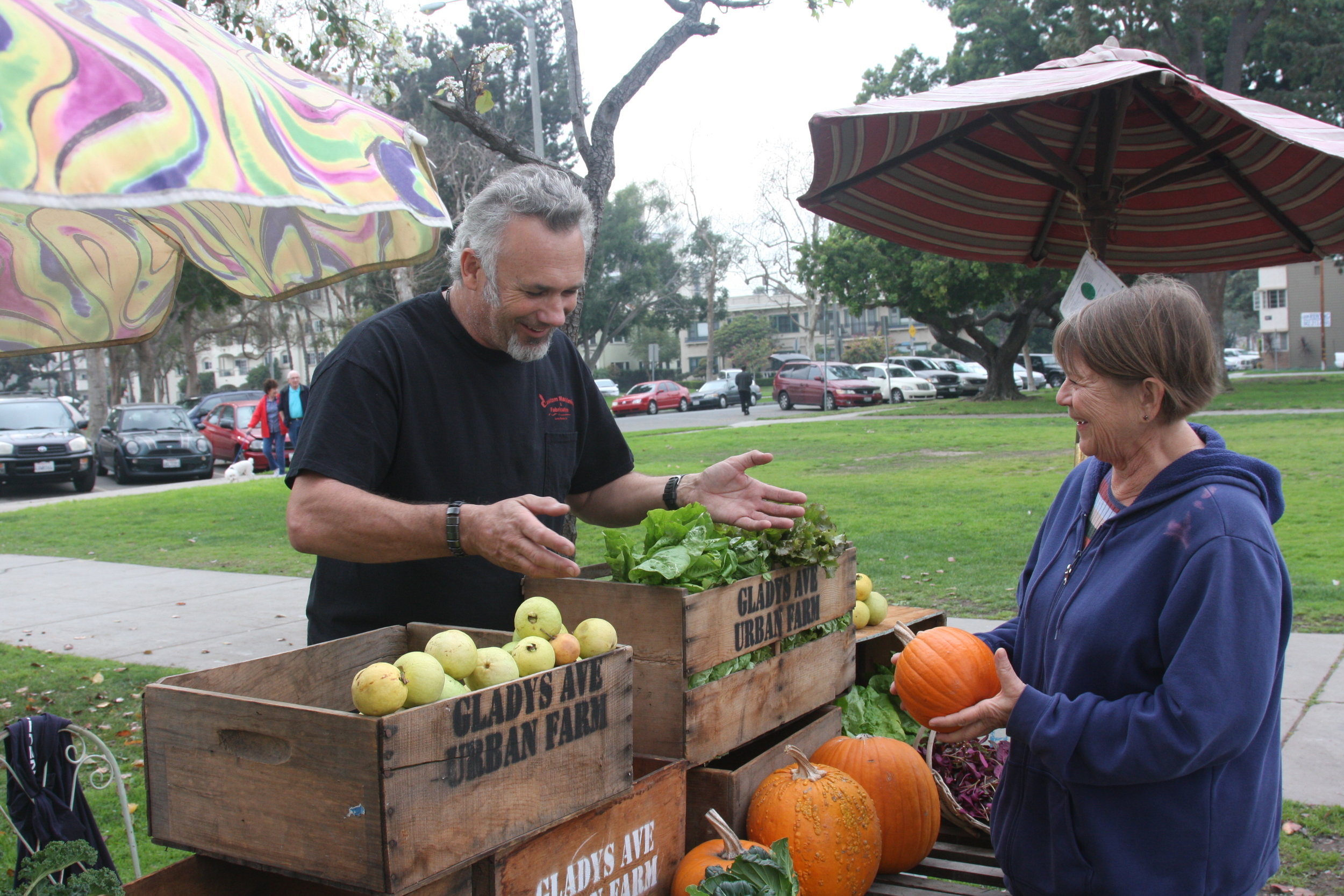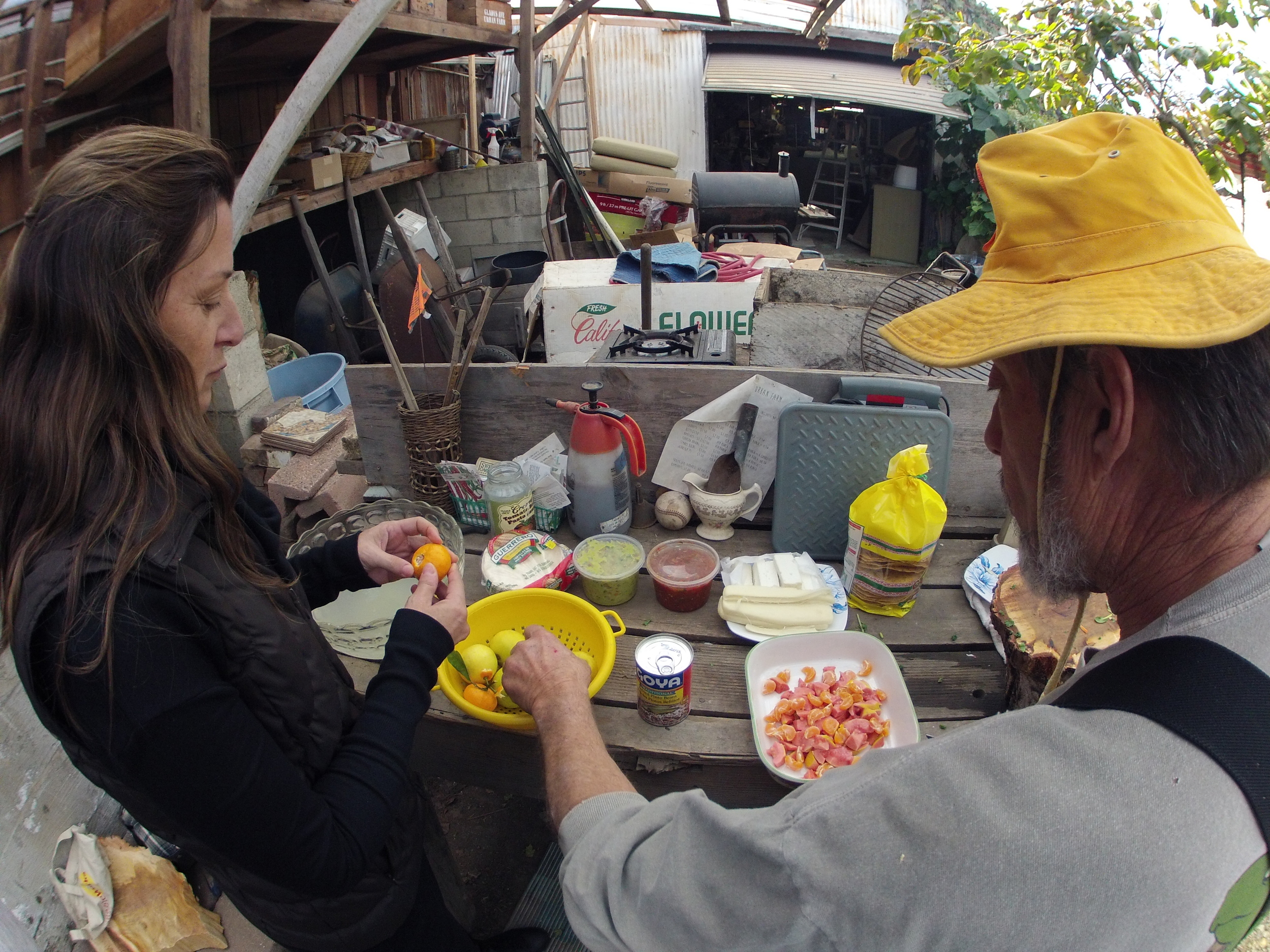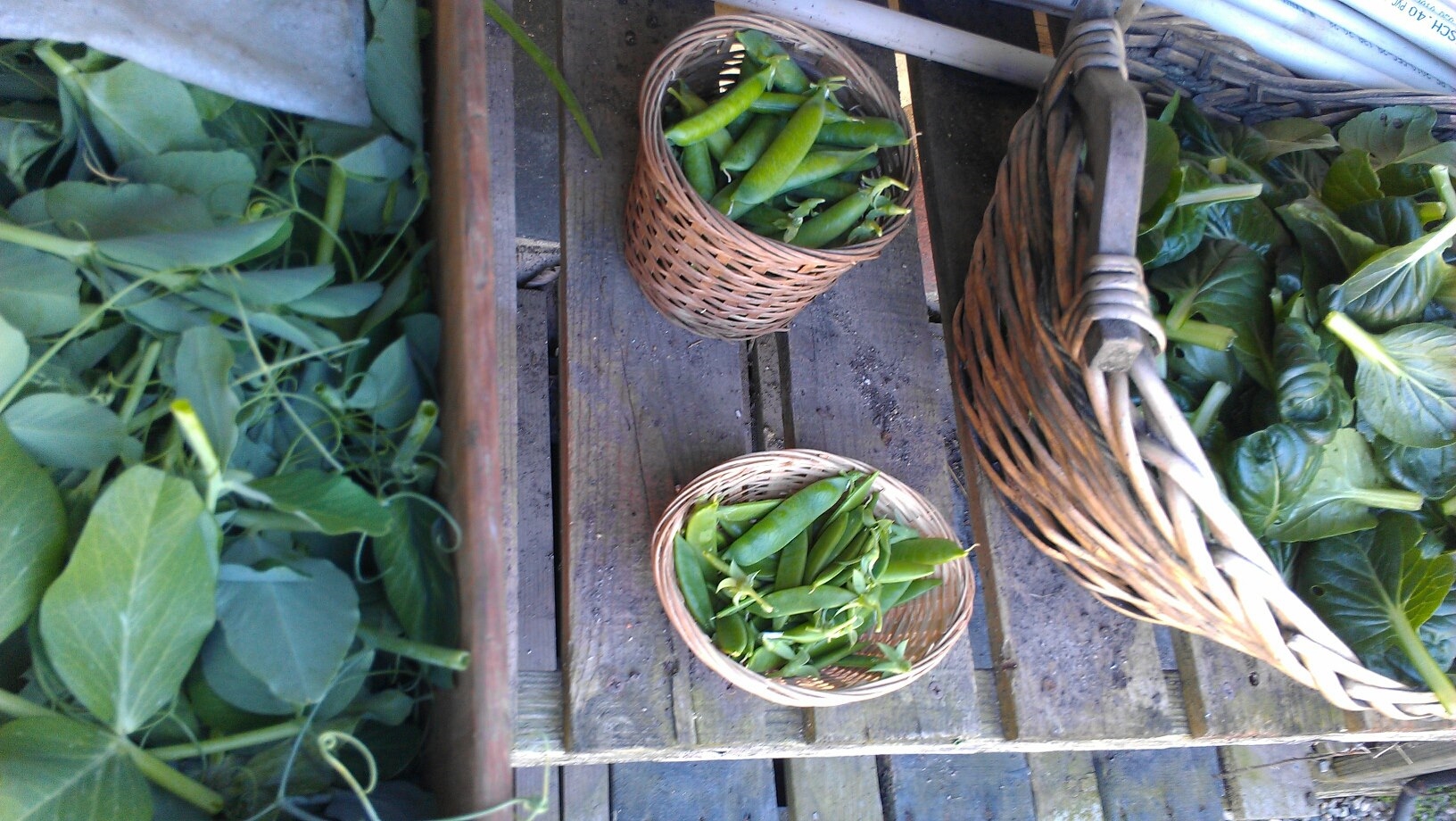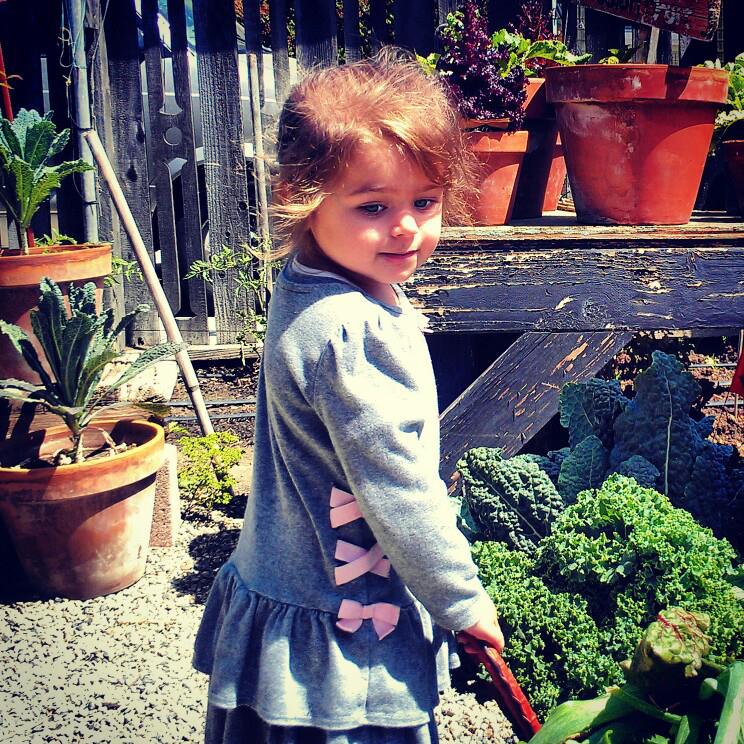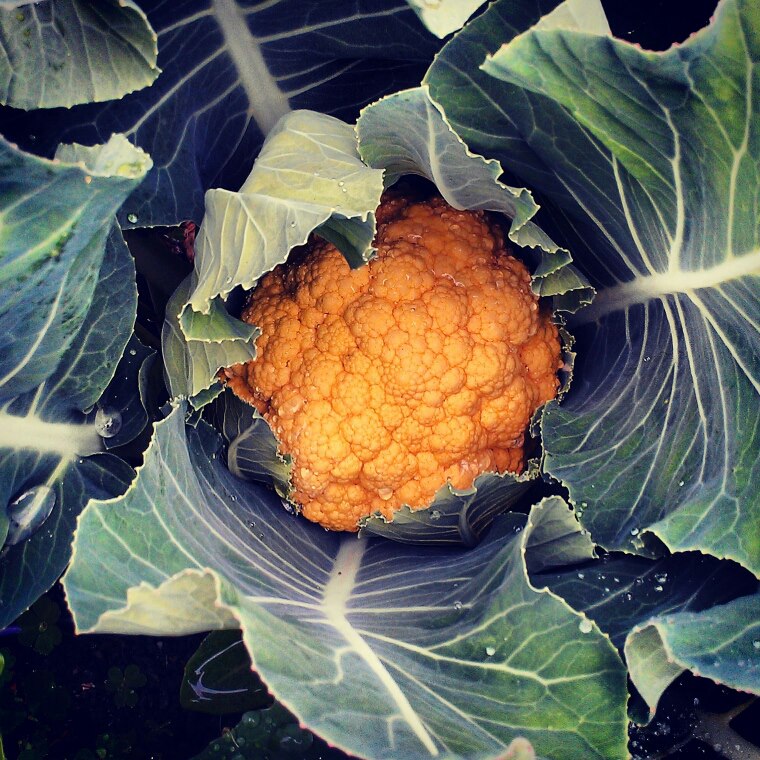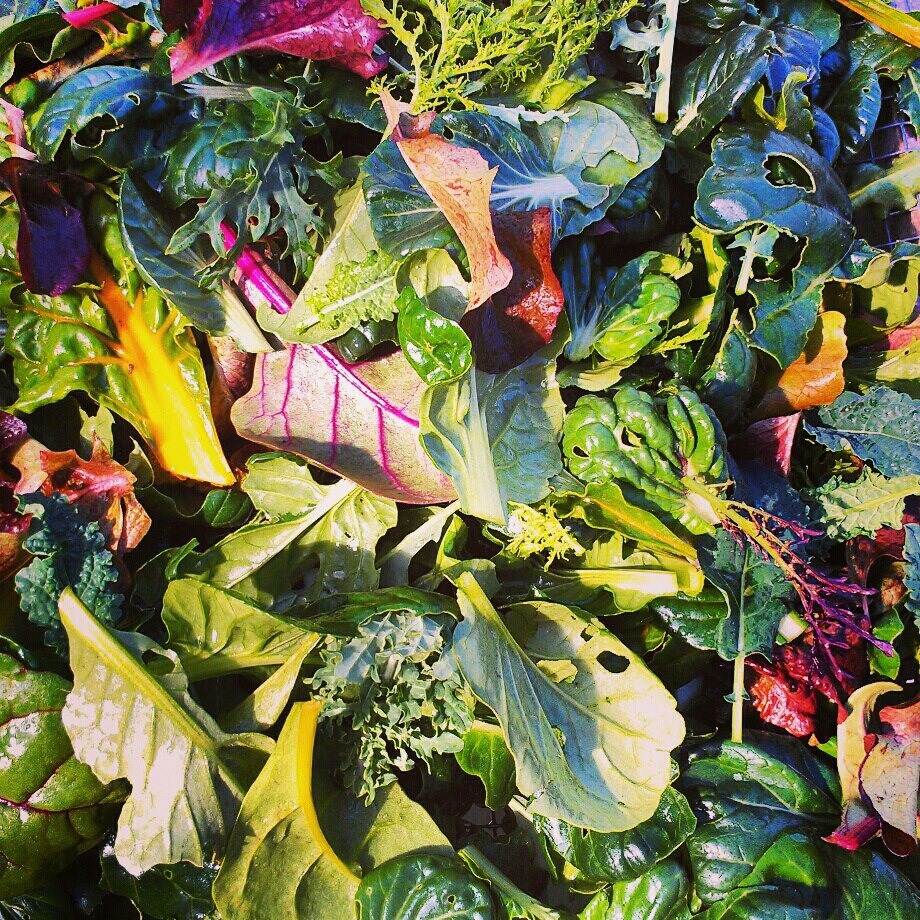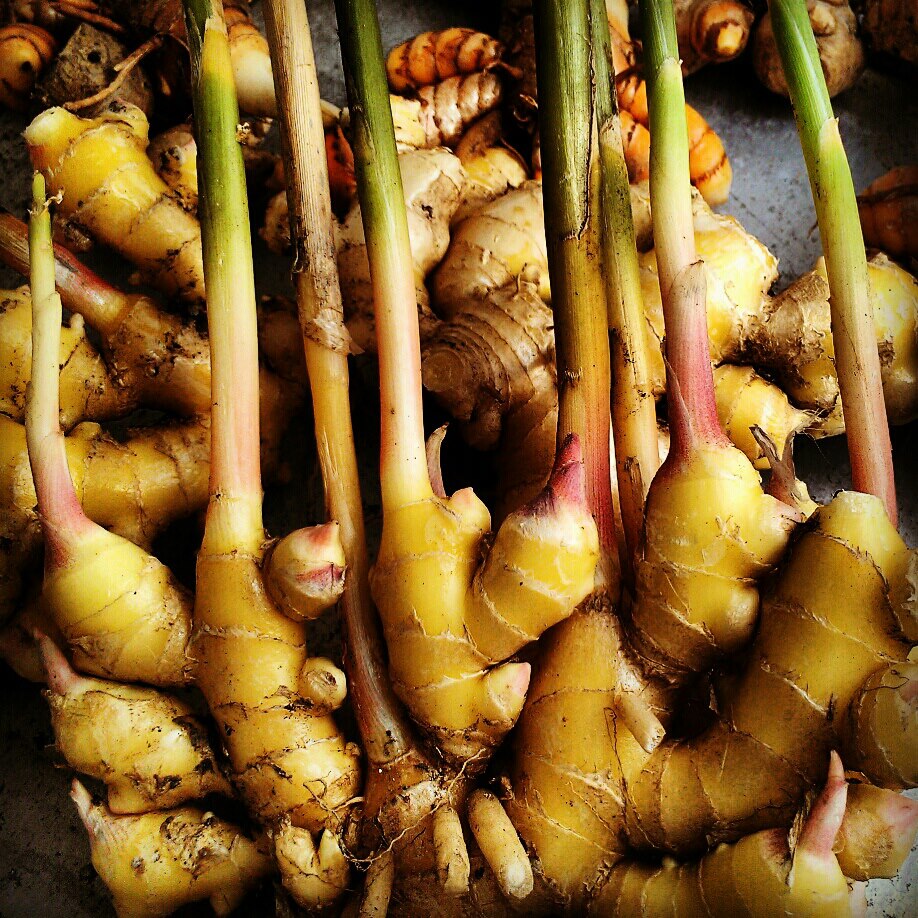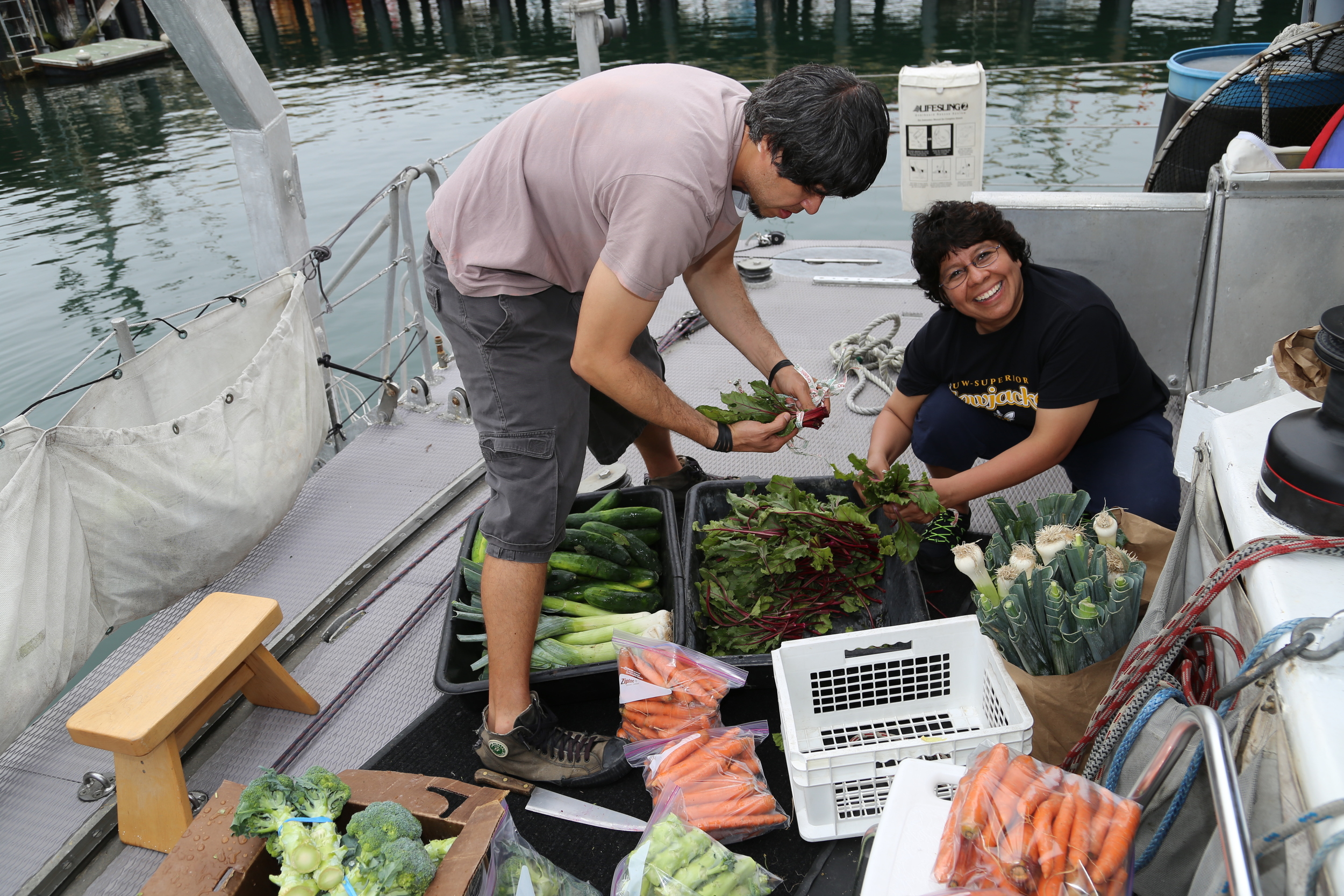"Gladys Avenue Urban Farm: Organic Produce From the Soil to the Table"
November 5. I attended the Gladys Avenue Farm Luncheon with Chef Paul Buchanan. The urban agriculture movement celebrated 37 years of organic gardening at my old Gladys Ave Urban Farm with a lunch for local growers. Great that the new owner is continuing solid support for Urban Ag.
April 8. THE GLADYS AVENUE URBAN FARM HAS OFFICIALLY TRANSITIONED TO THE MAYE CENTER! On April 8, The Long Beach Post wrote this great article. “Gladys Avenue Urban Farms Heals as it Teaches” On April 5, Spring arrived with the Lady Bug Release at the Farm.
January 18, 2019. Martin Luther King Day. Our cherished Gladys Avenue Urban Farm began a resurgence recently. This is a gathering of volunteers who have begun the process. This fertile ground is once again coming to life.
November 5. With Lara Som MAYE Center and our Councilman Daryl Supernaw, at the revival of the Gladys Ave Urban Farm. A Red Letter Day!
Gladys Avenue Urban Farm is located not far from my home and the ORV Alguita in Long Beach, California. I purchased the property in 1985 to add upholstery to my then furniture repair business across the street. Soon after, I cleared the land adjacent to the building and created “The Company Garden”, based on the concept of integrated local production. Produce from the Garden supplied the employees and local community and was the hub of the Long Beach Food Cooperative. We were the first to sell Mesclun mixed greens in Southern California to our first customer, Papa John’s Natural in Belmont Shore.
The Farm also supplied fruits and vegetables to local distributor, Beach Greens, and serviced Chefs Paul and David in Long Beach. It is now a farm-to-table operation run by Chef Gary Menes, whose restaurant, Le Comptoir, is rated Number 2 in Los Angeles by the Los Angeles Times.
Managing the land organically --- small scale intensive community supported agriculture --- can be key to elimination of agricultural practices harmful to health and damage to the coastal ocean with toxic run-off. Local production also reduces excessive transportation costs, maximizes produce freshness and minimizes packaging, thereby further reducing the use of plastic bags or containers.
An afternoon at the Garden
Growing Staples for the 2014 expedition


